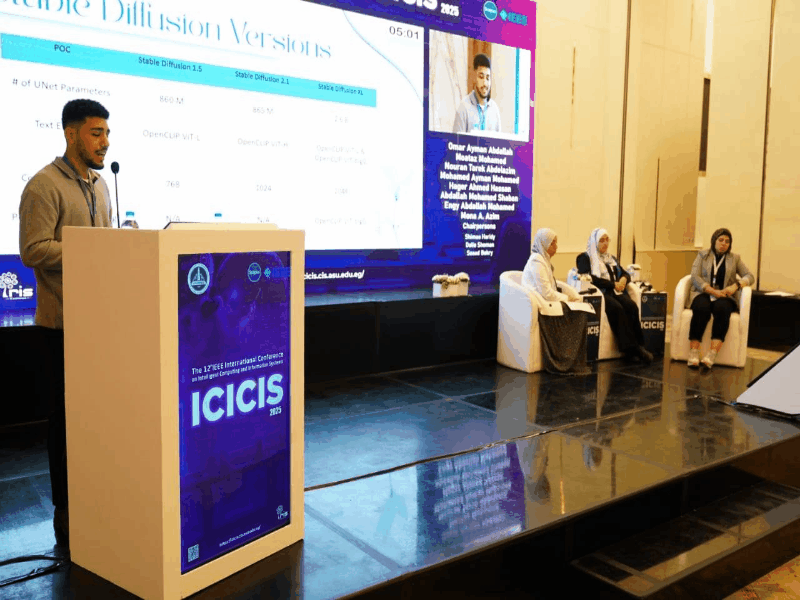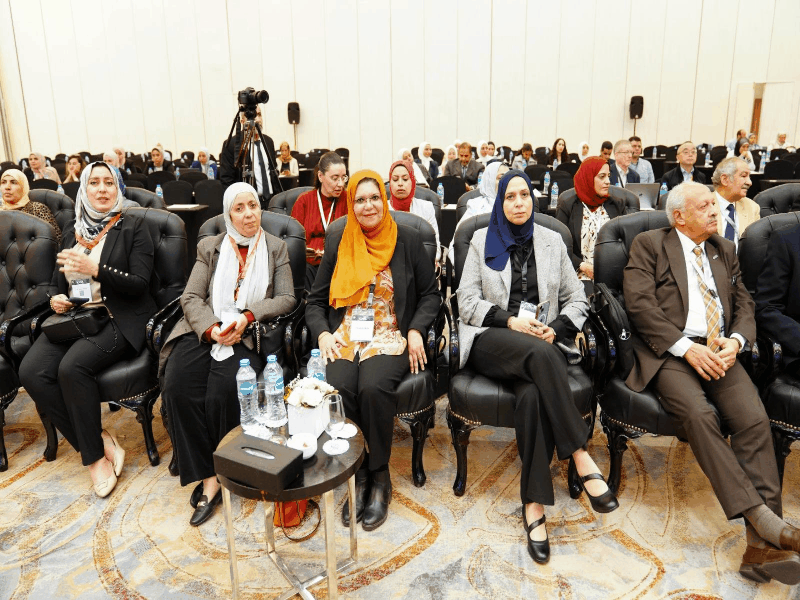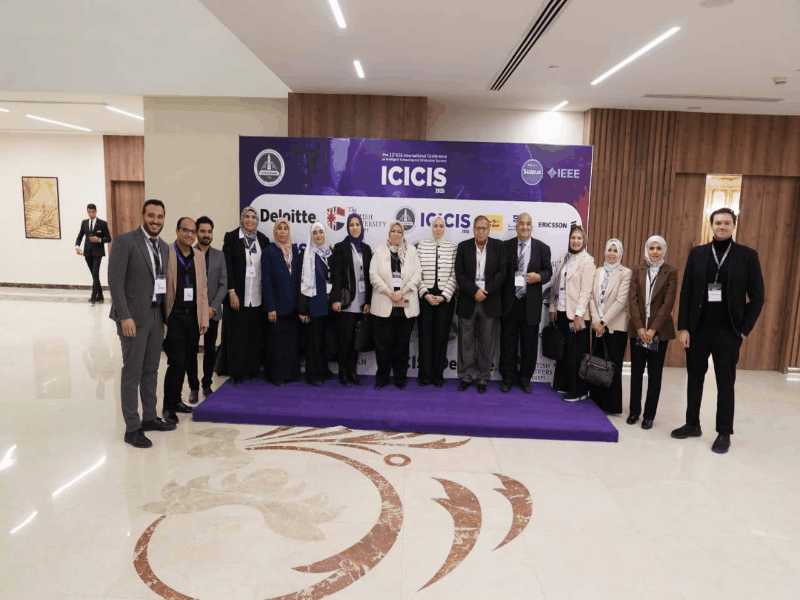18 scientific sessions and specialized presentations by scholars from various international universities were held during the sessions of the 12th International Conference on Intelligent Computing and Information Systems (ICICIS 2025)
During the twelfth edition of the International Conference on Intelligent Computing and Information Systems (ICICIS 2025), held at the Faculty of Computer and Information Sciences, Ain Shams University, under the patronage of Prof. Ayman Ashour, Minister of Higher Education and Scientific Research; Prof. Mohamed Diaa Zain El-Abedeen, President of Ain Shams University; Prof. Ghada Farouk, Vice President for Community Service and Environmental Development; and Prof. Amany Osama Kamel, Vice President for Graduate Studies and Research, and conducted over two days, Prof. Rasha Ismail, Dean of the Faculty, noted that the conference included 18 scientific sessions and specialized presentations covering a wide range of topics. These included artificial intelligence, data visualization, robotics, embedded systems, computer networks, digital forensics, cybersecurity, the Internet of Things, smart environments, ubiquitous computing, data science, bioinformatics knowledge discovery, health informatics, biomedical systems, software engineering, and applied artificial intelligence.
The conference also featured workshops delivered by leading industry partners to enhance academic–industry collaboration, including Deloitte, Ericsson, Noon, and Huawei.
On the sidelines of the conference, a meeting of the Computer and Information Sciences Sector Committee of the Supreme Council of Universities was held, attended by Prof. Essam Khalifa, Head of the Computer and Information Sciences Sector; Prof. Hala Zayed, Secretary of the Sector Committee; and a distinguished group of deans of faculties of computers and information from Egyptian public and private universities.
 |
The conference also hosted key scientific figures, foremost among them Prof. Hassan Abdalla, President of the University of East London (UEL), who delivered a lecture titled “Quantum Computing and Artificial Intelligence… The Disruptive Wave.” His lecture explored the accelerating convergence between quantum computing and artificial intelligence, highlighting vast research opportunities and the emerging practical applications resulting from this transformative shift. Practical examples included quantum-enabled drug discovery, clinical trial simulation, climate modeling, smart energy systems for sustainability, encryption and cyber-resilience for next-generation security, and swarm robotics and multi-agent process automation powered by quantum optimization.
Prof. Huan Liu, Regents Professor and Ira A. Fulton Chair of Computer Science and Engineering at Arizona State University (USA), delivered a lecture titled “Mining Social Media Data, Artificial General Intelligence, and Future Prospects.”
He highlighted emerging opportunities at the intersection of AI and big data from a social media perspective, showing how generative AI, such as large language models (LLMs), has introduced new challenges. He used illustrative examples addressing fundamental problems associated with multimodal data such as that from social media, existential understanding in machine learning and data mining, and complex issues arising from the use of AI across domains. He also discussed efforts to understand large language models and potential directions for the fast-evolving AI landscape.
 |
Prof. Robert H. Sloan, Professor of Computer Science at the University of Illinois Chicago (UIC), gave a lecture titled “Cybersecurity and Privacy at the Intersection of Economics, Public Policy, and Law.” He reviewed the development of cybersecurity and privacy research from its early beginnings to current challenges where technology intersects with economics, public policy, and law. He discussed the origins of cybersecurity in the 1970s, key breakthroughs in cryptography, and results showing the limitations of certain access-control models. Drawing on more than a decade of collaboration with legal scholars and philosopher Richard Warner, he addressed questions such as: Why is computer security often weaker than it should be? Why is it difficult to limit behavioral advertising and widespread tracking? And what does privacy truly mean in an era of significant erosion? He concluded by examining how cybersecurity and privacy research can help guide efforts aimed at regulating fairness in data-driven decision-making systems.
Prof. Shady Albarqouni, Professor of Computerized Medical Imaging Research at the University of Bonn, Germany, delivered a lecture on “Harnessing Collective Intelligence for Universal Healthcare.” He explained that deep learning (DL) plays a leading role in AI, revolutionizing computer science due to its versatility across tasks, especially in computer vision and medical applications. He highlighted federated learning as a groundbreaking approach that enables training deep learning models without compromising data security by allowing local hospitals to share only trained parameters with a central model, enhancing collaboration while preserving privacy. He also outlined key challenges, including heterogeneity, domain shifts, data scarcity, and the inherent multimodal complexity of medical imaging, along with the common challenges facing AI in medicine.
In addition, the conference included numerous scientific sessions and research papers that offered a valuable and inspiring experience for all participants, supporting innovation, strengthening scientific collaboration, contributing to the implementation of Ain Shams University’s strategic plan, and advancing Egypt’s Vision 2030 for digital transformation and technological leadership.


.svg)

